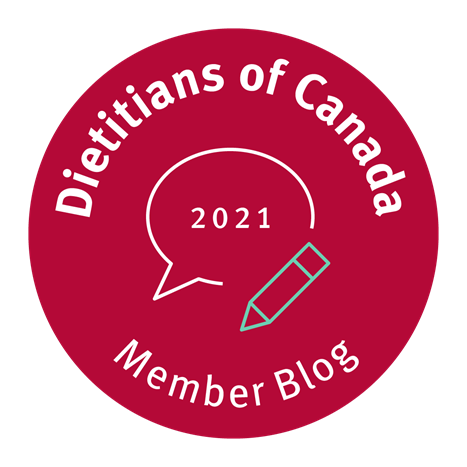What do dairy products have in common with whole grains, calcium, physical activity and foods high in dietary fibre?
What do dairy products have in common with whole grains, calcium, physical activity, and foods containing dietary fibre? There is strong evidence for all five factors showing they reduce the risk of colorectal cancer.
That is the conclusion of the report from the World Cancer Research Fund and the American Institute for Cancer Research. The report also points out that vitamin C, vitamin D, and fish might protect against colon cancer.
In fact, recent evidence suggests that between 60-70% of colon cancer cases are preventable due to lifestyle factors such as diet [1].
The World Cancer Research Fund, a global leader linking organizations involved in cancer research and cancer prevention, has a continuous update program (CUP) to analyze research on how diet and other lifestyle factors influence cancer. Their findings are used to inform everyone from policymakers to members of the public about the latest research and recommendations to prevent cancer.
The report on colorectal cancer is based on a systematic review of the research literature done by an Expert Panel of scientists. In their review, they noted that 8 out of 10 cohort studies found a decreased risk of colon cancer as milk intake increased. As for fibre, the report noted that the overall evidence found in 23 studies was consistent in showing a decreased risk of colorectal cancer with adequate consumption of fibre in the diet. The report was published in 2017 and revised in 2018.
There is enough evidence to conclude that dairy products and the consumption of foods containing dietary fibre probably protect against colorectal cancer.
The Expert Panel ranks the various risk factors. Their conclusions regarding factors decreasing risk of colon cancer can be found in the table below.
Evidence for Different Factors Decreasing Risk of Colon Cancer |
|
Convincing Evidence |
physical activity |
Probable Evidence |
whole grains foods containing dietary fibre dairy products (milk, cheese) calcium supplements |
Limited Evidence—suggestive |
foods containing vitamin C fish vitamin D multivitamin supplements |
Limited Evidence—no conclusion |
grains, potatoes, poultry, shellfish, legumes, garlic animal fat, low fat, fatty acid composition, cholesterol, omega-3 from fish non-dairy sources of calcium foods containing added sugars, sucrose coffee, tea, caffeine carbohydrate, starch, total fat, glycemic index, glycemic load folate; vitamins A, B6, E; selenium, beta-carotene, alpha-carotene, retinol, lycopene meal frequency, energy intake, dietary pattern |
World Cancer Research Fund, 2018
What is it about milk?
The protective effect of milk is probably due in part to its calcium content. The report cites evidence that casein and lactose found in milk may also increase calcium bioavailability. But many other components in milk, such as vitamin D, butyric acid, and conjugated linoleic acid (CLA) could also play a role in protecting from colon cancer.
What is it about fibre?
A recent study in the UK found that insufficient fibre intake is one of the highest lifestyle risk factors for colon cancer, estimated to be responsible for 25-30% of cases [1]. The protective effect of fibre is suspected to come from multiple factors. Fibre is fermented in our colon by our gut bacteria and formed into short-chain fatty acids such as butyrate which has been shown to have a protective effect. High fibre diets may also reduce insulin resistance which is a risk factor for colon cancer [2].
Here are 5 simple tips to reduce your risk of colon cancer
Considering this evidence, it makes sense to add or replace some foods in your diet with ones that may protect you from colon cancer
- Eat plenty of fruits and veggies every day. A good rule of thumb is 7–10 portions/day for adults, and a sure way to get plenty of fibre.
– Think fruit for snacks.
– Sauté veggies—tasty! And it’s easy to get 2–3 portions of veggies this way.
– A portion is only ½ cup, so double and triple up your portions at meals.
- Aim for at least 4 portions of whole grains during the day for even more fibre.
– Choose whole-grain bread for sandwiches—each slice of bread is a portion, so that’s 2 portions.
– Choose whole-grain cereals like oatmeal.
– Keep whole-grain crackers like rye crispbread in your cupboard to have handy for snacks. - Make dried beans a regular part of your meals for a final fibre boost.
– Keep canned beans handy so you can add them to soups and salads.
– Wrap a tortilla around beans, salsa, and some grated cheese for a quick meal.
– Keep hummus ready-made for sandwich spreads and dips. Try this original recipe for White Bean & Feta Hummus. - Serve milk with meals.
– Be maverick—order milk when eating out. Each cup of milk counts as a portion, and adults need 2–3 portions of milk or milk alternatives in a day.
– Cook with milk. Try soups such as Springtime Chicken, Spinach, and Snap Pea Soup.
– Invest in one of the new insulated drink containers to bring milk along for lunch. - Go DIY
– Use milk to make yogurt, paneer, or kefir.
Follow these expert tips and you are well on your way to protecting yourself from colon cancer!
Follow these expert tips and you are well on your way to protecting yourself from colon cancer!
Revised and updated in 2021 by Erica Cahill, dietetic student with Sydney Massey, MPH, RD
